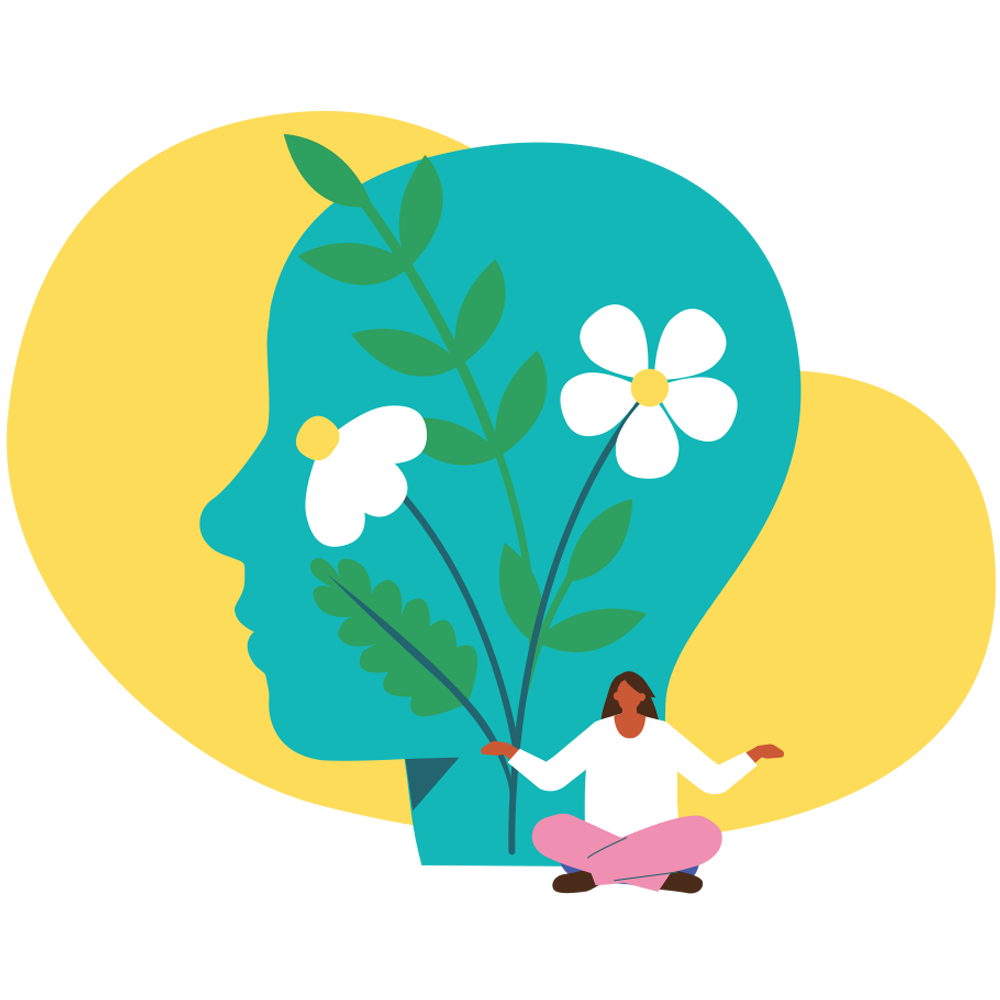Inpatient Therapy
What to expect in group therapy
Group therapy, as the name implies, is a type of psychological therapy that is conducted with a group of people who are facing similar issues, like anxiety or addiction. Unlike self-help support groups, our sessions are guided by a professional therapist who is trained in group therapy.
The therapist acts as moderator and there is often a theme or topic for your group's discussion. Sometimes, the therapist will allow group members to pick the topic for the session.
Within the group therapy setting, you will try to replace your old behaviour with newer, more productive ways. Interaction and discussion within the group is encouraged, and you will also undertake specific activities to address your fears and concerns.
During a hospital admission, inpatients can attend a weekly schedule of dynamic and innovative psycho-educational sessions.
Also provided are yoga and meditation groups held twice a week.
We have an on-site gym with an exercise physiologist. You can also go for walks once you have been granted approval from you Psychiatrist. Research has shown that exercise can improve mental well-being.
We recommend you make the most of the inpatient treatment program which is a whole person approach to your treatment and recovery.
Participation and attendance is required.
Inpatient recovery and dual diagnosis program
The Recovery and Dual Diagnosis program is group-based and commences at 8:30am with a community meeting followed by psycho-education groups at 9:00am, 10.30am and 1.00pm.
Patients attending this program have been diagnosed with an addictive disorder, such as a substance use disorder with another mental health disorder such as anxiety, depression or trauma. Hence the dual diagnosis. You are provided with education to be better able to understand addictive behaviours and the link between addiction and other mental health diagnoses, introduced to skills from Cognitive Behaviour Therapy (CBT), Acceptance & Commitment Therapy (ACT). Encouraged to practice mindfulness and focus on sobriety the key components of the program are understanding emotions, managing cravings, coping with change and relapse prevention.
Recovery education and support as well as issues of co-dependency and promoting healthy relationships are also included. Emphasis is also given to various models of recovery.
There is also an evening program which introduces you to AA/NA and the 12-step program. Attendance to all groups in this program is compulsory once you have completed your detoxification. Attendance is taken at each group and recorded for your Psychiatrist to monitor.
The Recovery and Dual Diagnosis program runs as an abstinence based program which means there are certain behaviours that could result in you being discharged from the Clinic. This includes:
- the use of alcohol or any drugs that have not been prescribed by your treating Psychiatrist (including over the counter medications such as cold and flu tablets)
- bringing any illicit substances into the Clinic or onto the premises
- supplying any substance to another patient
- any aggressive or violent behaviours towards staff, other patients or property
- developing intimate relationships with a co-patient
Inpatient mood and anxiety program
The Mood and Anxiety program is group based and commences at 8:30am with a community meeting followed by psycho-education groups at 9:00am, 10.30am and 1.00pm.
Patients attending this program have been diagnosed with a mood (for example depression, bi-polar affective disorder) or anxiety disorder (for example generalized anxiety disorder, social anxiety, post-traumatic stress disorder).
Sessions provide the opportunity for you to gain an understanding of mood and anxiety disorders through psycho-education, skills building, behavioural activation and focused strategies.
Utilising Cognitive Behaviour Therapy (CBT), Acceptance & Commitment Therapy (ACT) as well as mindfulness based approaches, you will gain the necessary psychological tools to assist with managing your illness and recovery.
Attendance is taken at each group and recorded for your Psychiatrist to monitor.
Inpatient veterans and emergency services program
The Veterans and Emergency Services program is group based and commences at 8:30am with a community meeting followed by psycho-education groups at 9:00am, 10.30am and 1.00pm.
In order to meet the needs of the cohort of veterans and emergency services, 2020 saw the introduction of this program.
You are provided with a safe space in which the specific needs of military and emergency services personnel are met through psycho-education, skills building and psychotherapy.
Gaining information about PTSD, mood disturbance, sleep hygiene and addictive behaviours the program incorporates Cognitive Behaviour Therapy (CBT), Acceptance & Commitment Therapy (ACT) and narrative therapy.
Attendance is taken at each group and recorded for your Psychiatrist to monitor.
Inpatient holistic wellness program
Supporting our specialised programs is the holistic wellness program which is conducted Monday to Friday at 2:30 pm.
Our Exercise Physiologist led session explores the link between movement and mental health. Providing evidence based theories and strategies to understanding the role of physical health and overall well-being. These sessions offer an opportunity to meet our Exercise Physiologists and discuss how to incorporate physical wellbeing into your treatment plan, safe movement and being mindful of pain, incorporating physical activity into daily life.
Discharge planning sessions explore how to maintain gains made during admission, planning for appropriate follow up, connecting with community and support networks and goal setting. This session can be attended at any point during admission, it is never too early to consider life after discharge and committing to action plans.
Dedicated to the education and exploration of dietetics and over all well-being, our dietitian provides thought-provoking and motivating research, information, activities and strategies to explore and address eating and nutrition. Building knowledge and making changes that can carry on throughout life.
Our Exercise Physiologists provide guided exercises alongside stretch and release sessions to enhance movement and connect physical and mental well-being.
Expressive therapy runs in the Art space and is a session dedicated to incorporating creativity and hands on art activities to promote mindfulness, therapeutic expression through different mediums and enjoyment.

Want more information on our programs?
Send us an enquiry form or contact our team.
Phone: 1800 119 118